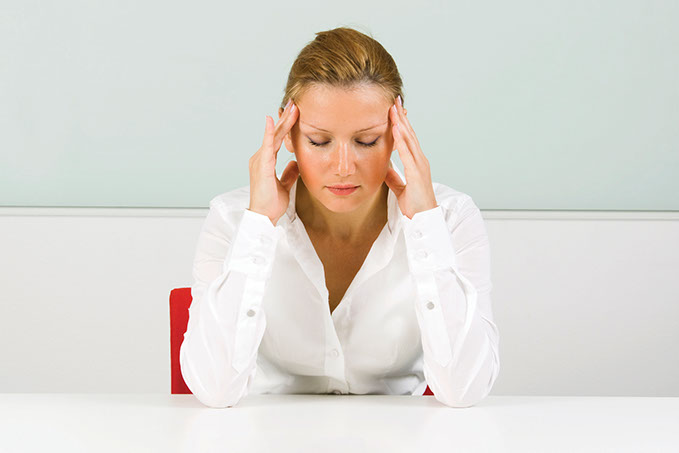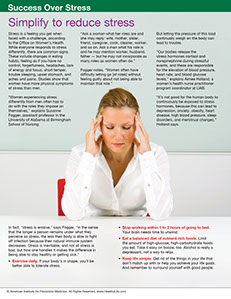SYMPTOM CHECKER
CONDITIONS
Male
Female
Child
Arm, Hand & Shoulder Concerns
Legs & Feet Concerns
Dental & Mouth Concerns
Ear & Nose
Eye Conditions
Head Conditions
Arm, Hand & Shoulder Concerns
Legs & Feet Concerns
Front
Back
Arm, Hand & Shoulder Concerns
Dental & Mouth Concerns
Ear & Nose
Eye Conditions
Head Conditions
Arm, Hand & Shoulder Concerns
Dental & Mouth Concerns
Ear & Nose
Eye Conditions
Head Conditions
Front
Back
Arm, Hand & Shoulder Concerns
Neck Links
Head & Neck Concerns
Arm, Hand & Shoulder Concerns
Neck Links
Head & Neck Concerns
Front
Back
Online Clinic
Wise Healthcare
Simplify to reduce stress

Print on Demand
Stress is a feeling you get when faced with a challenge, according to the Office on Women’s Health. While everyone responds to stress differently, there are common signs. These include changes in eating habits, feeling as if you have no control, forgetfulness, headaches, lack of energy and focus, short temper, trouble sleeping, upset stomach, and aches and pains. Studies show that women have more physical symptoms of stress than men.
“Women experiencing stress differently from men often has to do with the roles they impose on themselves,” explains Susanne Fogger, assistant professor in the University of Alabama at Birmingham School of Nursing.
“Ask a woman what her roles are and she may reply: wife, mother, sister, friend, caregiver, cook, cleaner, worker, and so on. Ask a man what his role is and he may mention worker, husband, father — but he may not incorporate as many roles as women often do.”
Fogger notes, “Women often have difficulty letting go [of roles] without feeling guilty about not being able to maintain that role.”
But letting the pressure of this load continually weigh on the body can lead to trouble.
“Our bodies release the stress hormones cortisol and norepinephrine during stressful events, and these are responsible for the elevation of blood pressure, heart rate, and blood glucose levels,” explains Aimee Holland, a women’s health nurse practitioner program coordinator at UAB.
“It’s not good for the human body to continuously be exposed to stress hormones, because this can lead to depression, anxiety, obesity, heart disease, high blood pressure, sleep disorders, and menstrual changes,” Holland says.
In fact, “stress is erosive,” says Fogger, “in the sense that the longer a person remains under what they perceive as stress, the less their body is able to fight off infection because their natural immune system decreases. Stress is inevitable, and not all stress is bad, but how one handles it makes the difference in being able to stay healthy or getting sick.”
• Exercise daily. If your body’s in shape, you’ll be better able to tolerate stress.
• Stop working within 1 to 2 hours of going to bed. Your brain needs time to unwind.
• Eat a balanced diet of nutrient-rich foods. Limit the amount of high-glucose, high-carbohydrate foods you eat. Take it easy on booze, too. Alcohol is really a depressant, not a way to relax.
• Keep life simple. Get rid of the things in your life that don’t match up with or help you achieve your life goals. And remember to surround yourself with good people.
This website is not meant to substitute for expert medical advice or treatment. Follow your doctor’s or health care provider’s advice if it differs from what is given in this guide.
The American Institute for Preventive Medicine (AIPM) is not responsible for the availability or content of external sites, nor does AIPM endorse them. Also, it is the responsibility of the user to examine the copyright and licensing restrictions of external pages and to secure all necessary permission.
The content on this website is proprietary. You may not modify, copy, reproduce, republish, upload, post, transmit, or distribute, in any manner, the material on the website without the written permission of AIPM.
2021 © American Institute for Preventive Medicine - All Rights Reserved. Disclaimer | www.HealthyLife.com















































